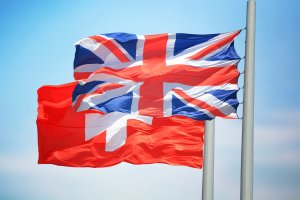- Commercial disputes
- Financial services

Longer Reads
Coronavirus and cancelled flights: refund or vouchers?
Many airlines are refusing to give refunds for flights cancelled due to the pandemic and their dire financial position and are offering vouchers instead, resulting in various national institutions enacting specific legislation to deal with this and action by consumer organisations and law firms in a number of countries.
3 minute read
Published 7 July 2020
Key information
- Services
- Commercial disputes
- Sectors
- Financial services
Many airlines are refusing to give refunds for flights cancelled due to the pandemic and their dire financial position and are offering vouchers instead, resulting in various national institutions enacting specific legislation to deal with this and action by consumer organisations and law firms in a number of countries.
Ever since the COVID-19 pandemic broke out, European and other countries have implemented travel bans and border restrictions. This has led to a vast number of flight cancellations. The European Union provides consumer protection by Regulations, which are directly applicable to all member states, but many airlines are trying to avoid complying with these European principles given the impact that the pandemic has had on their finances The European Commission has, as a result, issued specific recommendations to member states.
What the European legislation says are the rights of consumers
Regulation (EC) No. 261/2004 of the European Parliament and of the Council of 11 February 2004 provides that where a flight is cancelled, the passenger has the right to choose between a refund within seven days of the full cost of the ticket at the price at which it was bought or, with the signed agreement of the passenger, a travel voucher and/or other service. In addition, passengers have the right to compensation where cancellation is at short notice (less than two weeks), with the exception of those cases in which the cancellation occurs due to ‘extraordinary circumstances’ which could not have been avoided even if all reasonable measures had been taken.
Even though the Coronavirus emergency is generally considered to be an extraordinary circumstance which, under the European regulation mentioned above, allows airlines to be exempted from paying compensation, there is no exemption that applies to the consumers right to choose to receive a refund instead of a voucher.
Despite this, many airlines are currently not offering a refund through their website, and instead ask passengers to contact a helpline via a telephone number but passengers complain that it is difficult to obtain a reply to their call. In some instances, passengers are not even given the option to seek a refund.
The position taken by some European member state authorities
At the end of April 2020, twelve EU states, including Ireland, France, Poland, Greece and Portugal, issued a joint statement demanding that the European Commission suspend the law requiring airlines to offer a full refund for cancelled flights and allow airlines to choose the means by which passengers are reimbursed. Other European countries, such as Germany and Italy, have issued specific legislation that permits airlines to issue vouchers instead of refunding passengers.
For instance, on 24 in April 2020 the Italian Parliament passed into law the Italian Law Decree n. 18 of 2020 (so called “Cura Italia Decree”). Art. 88 bis of this Decree allows operators in the air transport sector (and other tourism sector as well) to issue a voucher – instead of a refund – for flights cancelled due to exceptional circumstances and situations connected with the emergency from Covid-19. The voucher can replace a refund without the need for specific acceptance by the consumer.
This new rule openly contrasts with the European Union Regulation No. 261/2004 mentioned above as it cancels the consumer choice to get a refund instead of a voucher, which is also contrary to Italian Constitutional principles.
The Italian Antitrust Authority in exercising its consumer protection functions against unfair trade practices, has called on the Italian Parliament to amend the “Cura Italia Decree” provision to make it consistent with the EU Regulation. It has also stated that it will intervene to ensure the correct application of the European legislation by disapplying the national legislation conflicting with it. In June 2020 the Italian Civil Aviation Authority (ENAC) ENAC announced that it has started investigations that could lead to sanctions on airlines.
What recommendations has the European Union issued for members states?
On 13 May 2020 the European Commission adopted a recommendation about vouchers but emphasised that EU countries must comply with EU legislation giving passengers a choice between a refund or a voucher. At the same time, it suggested various solutions which aim to find a balance between passengers’ needs and the serious liquidity crisis in the aviation sector.
The main recommendation for airlines is to make vouchers more attractive so that consumers will more readily accept them instead of the full refund. The European Commission suggests that vouchers offered by airlines should: be protected against possible insolvencies; have a minimum validity period of 12 months, after which passengers automatically acquire the right to reimbursement; permit the transfer of the voucher without any additional cost, and possibly have a higher value than the amount paid for the flights originally booked.
The European Commission also suggests that Member States might consider the adoption of schemes to support operators in the travel and transport sectors in line with European Union State aid rules and may decide, following the insolvency of a carrier or organiser, to cover reimbursement claims of passengers or travellers.
Can EU member states derogate from the European Regulation?
European regulation No. 261/2004 clearly states that passengers have the right to choose between receiving a refund or voucher in the event of a cancelled flight and that no event can constitute an exception. The European Commission has made it clear that European airlines cannot remove this right. On the consumer side, it is stressed that consumers rights must be guaranteed even more strongly now that they may have seen their income reduced as a result of the contraction of economic activities.
In the wake of this, passengers are still left with the opportunity to sue airlines because of the discrepancy between national laws and the EU regulation No. 261/2004 rules. Several class actions have already emerged in the EU against airlines and these are likely to grow in number.
It is probably likely that the Courts of the European member states will grant passenger claims, disapply any national legislation that contravenes the principles of the European Regulation or refer the matter to the Court of Justice of the European Union, to rule on the inconsistency between the national law and the European regulation.
Longer Reads
Coronavirus and cancelled flights: refund or vouchers?
Many airlines are refusing to give refunds for flights cancelled due to the pandemic and their dire financial position and are offering vouchers instead, resulting in various national institutions enacting specific legislation to deal with this and action by consumer organisations and law firms in a number of countries.
Published 7 July 2020
Associated sectors / services
Many airlines are refusing to give refunds for flights cancelled due to the pandemic and their dire financial position and are offering vouchers instead, resulting in various national institutions enacting specific legislation to deal with this and action by consumer organisations and law firms in a number of countries.
Ever since the COVID-19 pandemic broke out, European and other countries have implemented travel bans and border restrictions. This has led to a vast number of flight cancellations. The European Union provides consumer protection by Regulations, which are directly applicable to all member states, but many airlines are trying to avoid complying with these European principles given the impact that the pandemic has had on their finances The European Commission has, as a result, issued specific recommendations to member states.
What the European legislation says are the rights of consumers
Regulation (EC) No. 261/2004 of the European Parliament and of the Council of 11 February 2004 provides that where a flight is cancelled, the passenger has the right to choose between a refund within seven days of the full cost of the ticket at the price at which it was bought or, with the signed agreement of the passenger, a travel voucher and/or other service. In addition, passengers have the right to compensation where cancellation is at short notice (less than two weeks), with the exception of those cases in which the cancellation occurs due to ‘extraordinary circumstances’ which could not have been avoided even if all reasonable measures had been taken.
Even though the Coronavirus emergency is generally considered to be an extraordinary circumstance which, under the European regulation mentioned above, allows airlines to be exempted from paying compensation, there is no exemption that applies to the consumers right to choose to receive a refund instead of a voucher.
Despite this, many airlines are currently not offering a refund through their website, and instead ask passengers to contact a helpline via a telephone number but passengers complain that it is difficult to obtain a reply to their call. In some instances, passengers are not even given the option to seek a refund.
The position taken by some European member state authorities
At the end of April 2020, twelve EU states, including Ireland, France, Poland, Greece and Portugal, issued a joint statement demanding that the European Commission suspend the law requiring airlines to offer a full refund for cancelled flights and allow airlines to choose the means by which passengers are reimbursed. Other European countries, such as Germany and Italy, have issued specific legislation that permits airlines to issue vouchers instead of refunding passengers.
For instance, on 24 in April 2020 the Italian Parliament passed into law the Italian Law Decree n. 18 of 2020 (so called “Cura Italia Decree”). Art. 88 bis of this Decree allows operators in the air transport sector (and other tourism sector as well) to issue a voucher – instead of a refund – for flights cancelled due to exceptional circumstances and situations connected with the emergency from Covid-19. The voucher can replace a refund without the need for specific acceptance by the consumer.
This new rule openly contrasts with the European Union Regulation No. 261/2004 mentioned above as it cancels the consumer choice to get a refund instead of a voucher, which is also contrary to Italian Constitutional principles.
The Italian Antitrust Authority in exercising its consumer protection functions against unfair trade practices, has called on the Italian Parliament to amend the “Cura Italia Decree” provision to make it consistent with the EU Regulation. It has also stated that it will intervene to ensure the correct application of the European legislation by disapplying the national legislation conflicting with it. In June 2020 the Italian Civil Aviation Authority (ENAC) ENAC announced that it has started investigations that could lead to sanctions on airlines.
What recommendations has the European Union issued for members states?
On 13 May 2020 the European Commission adopted a recommendation about vouchers but emphasised that EU countries must comply with EU legislation giving passengers a choice between a refund or a voucher. At the same time, it suggested various solutions which aim to find a balance between passengers’ needs and the serious liquidity crisis in the aviation sector.
The main recommendation for airlines is to make vouchers more attractive so that consumers will more readily accept them instead of the full refund. The European Commission suggests that vouchers offered by airlines should: be protected against possible insolvencies; have a minimum validity period of 12 months, after which passengers automatically acquire the right to reimbursement; permit the transfer of the voucher without any additional cost, and possibly have a higher value than the amount paid for the flights originally booked.
The European Commission also suggests that Member States might consider the adoption of schemes to support operators in the travel and transport sectors in line with European Union State aid rules and may decide, following the insolvency of a carrier or organiser, to cover reimbursement claims of passengers or travellers.
Can EU member states derogate from the European Regulation?
European regulation No. 261/2004 clearly states that passengers have the right to choose between receiving a refund or voucher in the event of a cancelled flight and that no event can constitute an exception. The European Commission has made it clear that European airlines cannot remove this right. On the consumer side, it is stressed that consumers rights must be guaranteed even more strongly now that they may have seen their income reduced as a result of the contraction of economic activities.
In the wake of this, passengers are still left with the opportunity to sue airlines because of the discrepancy between national laws and the EU regulation No. 261/2004 rules. Several class actions have already emerged in the EU against airlines and these are likely to grow in number.
It is probably likely that the Courts of the European member states will grant passenger claims, disapply any national legislation that contravenes the principles of the European Regulation or refer the matter to the Court of Justice of the European Union, to rule on the inconsistency between the national law and the European regulation.
Associated sectors / services
- Commercial disputes
- Financial services
Need some more information? Make an enquiry below.
Enjoy reading our articles? why not subscribe to notifications so you’ll never miss one?
Subscribe to our articlesMessage us on WhatsApp (calling not available)
Please note that Collyer Bristow provides this service during office hours for general information and enquiries only and that no legal or other professional advice will be provided over the WhatsApp platform. Please also note that if you choose to use this platform your personal data is likely to be processed outside the UK and EEA, including in the US. Appropriate legal or other professional opinion should be taken before taking or omitting to take any action in respect of any specific problem. Collyer Bristow LLP accepts no liability for any loss or damage which may arise from reliance on information provided. All information will be deleted immediately upon completion of a conversation.
Close



















































